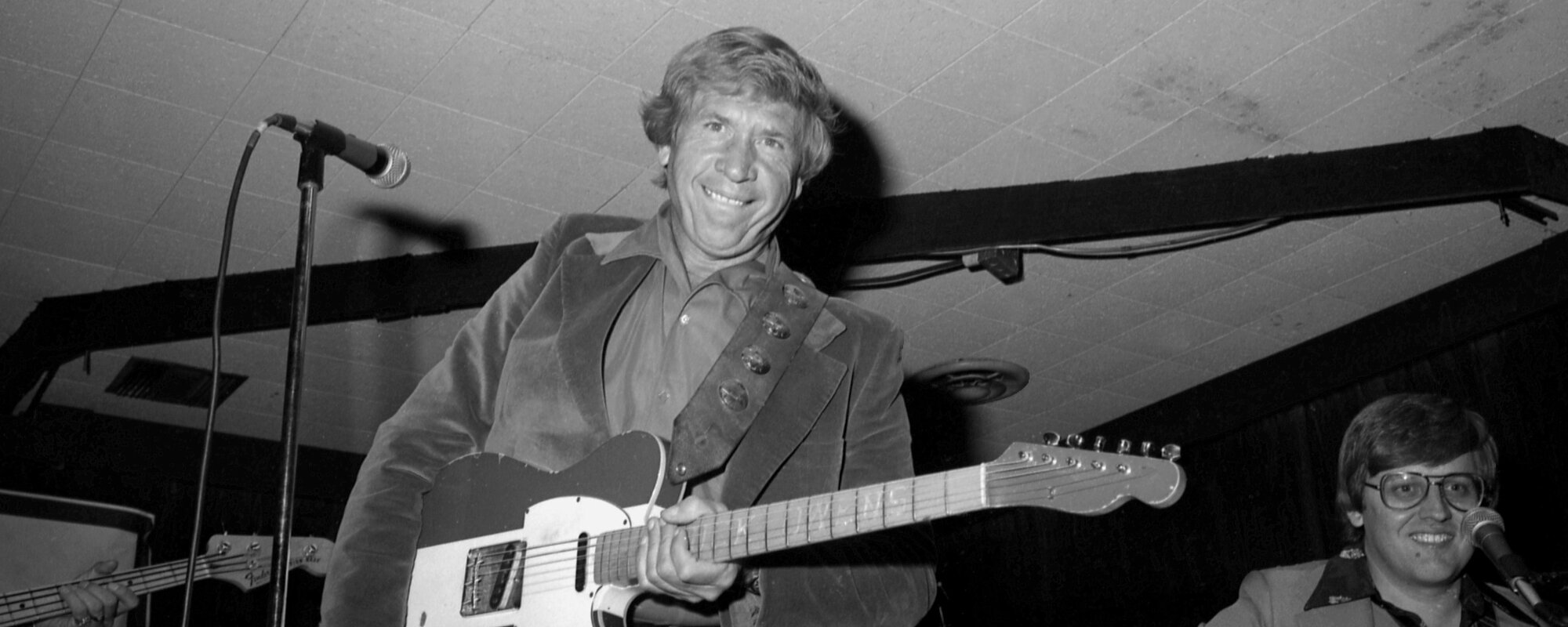David Bowie left behind a legacy of notoriously rich music to be analyzed and interpreted by fans, theorists, and critics. He wove narratives and personas through eras and albums, crafting stories, legends, and lore. Now, we’re going to take a look at the last of his life’s work, Blackstar from 2016. There’s a theory that the album was Bowie’s last will and testament, as he never revealed he had cancer until his death. He may have also warned of cosmic apocalypse in one of the lyrics.
Videos by American Songwriter
Part One: David Bowie and Elvis Presley
Elvis Presley and David Bowie are connected musically and cosmically, if you believe in that kind of stuff. Not only do they share a birthday, but Presley was a musical influence on Bowie. According to a 2016 piece by the BBC, Presley recorded a song called “Black Star” in 1960, but it wasn’t released until 1991. While the melody is light and cheerful, the lyrics are darker, describing a fear of death and seeing the “black star over my shoulder.”
The song begins with the verse, Every man has a black star / A black star over his shoulder / And when a man sees his black star / He knows his time, his time has come. It’s possible that this song was an inspiration for Bowie when he made Blackstar, although that is still speculation. However, the connections are uncanny, as in the title track—stylized as a back star symbol—Bowie sings, Something happened on the day he died / Spirit rose a metre and stepped inside / Somebody else took his place, and bravely cried / I’m a blackstar, I’m a blackstar.
Going by what the Presley song states, this “somebody else” was the “black star over my shoulder.” As he took the speaker’s place—another theory we’ll get to soon—he became the thing that killed him.
[RELATED: 20 Years Ago Today: David Bowie Played His Final Full-Length Concert at a German Festival]
Part Two: What Does Blackstar Really Mean?
The term “black star” has multiple meanings. It can mean the stage between a star’s death and a black hole, allusions to a hidden planet, or a certain type of cancer lesion. Many people believe naming his album Blackstar was Bowie’s way of sharing his cancer diagnosis. Although he died of liver cancer and a black star lesion usually appears on the breast, this is a clever theory, one that ties into the fact that David Bowie knew he was going to die soon.
This is most notably heard in the lines from the title track mentioned above. If one were to go by those lines alone, it seems like Bowie knew he was going to die and that others would take his place.
However, here’s where we get into the conspiracy theories of cosmic apocalypse supposedly hidden within the album. There are allegedly conspiracies of a doomsday collision between the Earth and a hidden planet called Planet X, or Nibiru. According to conspiracy theorists and “Christian numerologist” David Meade, the collision was initially predicted for September 23, 2017. When that didn’t occur, Meade pushed the date several times through the months. This collision has widely been debunked, so most likely, no, David Bowie was not predicting cosmic apocalypse.
There is reason to believe, though, that he was using the black star transitional state as a metaphor for his transition from life to death. According to a review in The Guardian from 2016, it’s possible that Bowie set himself up as the collapsed star that then transitions into a black hole. The black star state, if you will.
Part Three: David Bowie’s Last Will and Testament
David Bowie never publicly discussed his cancer diagnosis, and died two days after his birthday, which was also two days after Blackstar came out. His health was kept secret, and, as Carl Wilson wrote in Slate at the time, “This was in perfect line with the pristine, mostly unsentimental and entirely British control Bowie always exerted over his projections into the world.”
He gave us this album as a way to say goodbye, to prepare the way for the black star to take his place, and he did it in incredible Bowie fashion. On the final track, he sings, “I can’t give it all away,” alluding to his secrecy. On “Lazarus” he sings, “Ain’t that just like me,” which, yeah, Bowie, you got us there. He was secretive with his private life, masking and misdirecting all through his artistic career. As Wilson wrote, “Blackstar fell like a velvet cloth, and when it lifted, [Bowie] was gone.”
Featured Image by Theo Wargo/WireImage













Leave a Reply
Only members can comment. Become a member. Already a member? Log in.